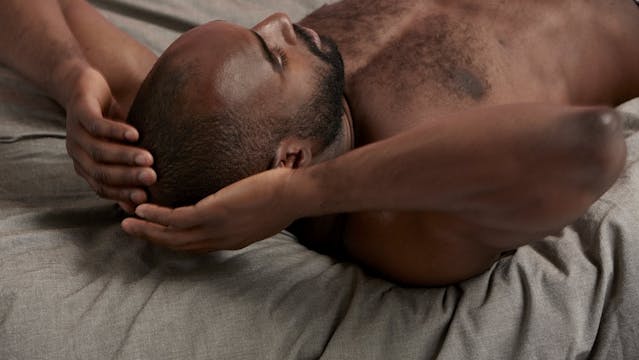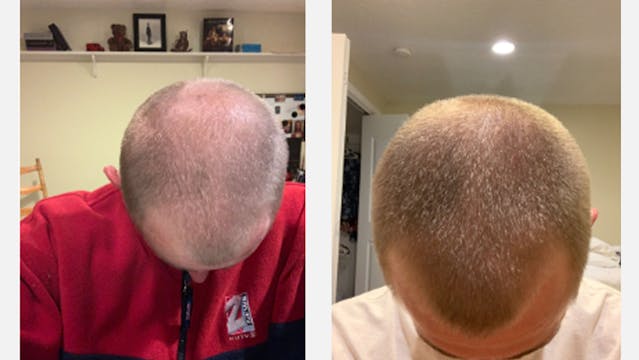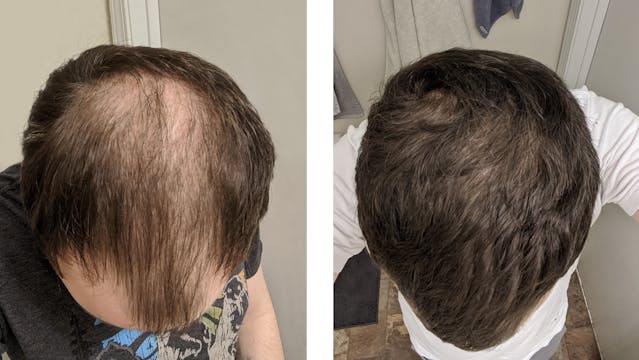Down in the dumps, feeling blue, not his usual self, cheer up mate it might never happen… man up!... We’ve all heard the way people try to check in on male colleagues, friends and family. Although our intentions may be in the right place, the way we approach men about how they’re feeling may not always be received with open arms, especially when they’re suffering from depression. We take a look at the symptoms of depression, male depressive behaviour and how men approach the disorder.
What are the symptoms of depression?
As a common mental disorder, it’s estimated that just over 3% of adults suffer from depression globally, according to the World Health Organisation. In England, 17% of people meet the criteria for a common mental disorder such as depression. Depressive disorders are clinically characterised by the prolonged presence of specific somatic and cognitive abnormalities, compounded with sadness, emptiness and irritability.
If you're depressed, you’re likely to feel down in mood, hopeless and lose interest in things you used to enjoy, however the individual experiences of depression are complex and can vary widely between people.
Types of depression
Depending on the type of depression people have, symptoms can persist for weeks or months, interfering across all aspects of life including work, socialising, family and relationships.
Major depressive disorder (MDD) interferes with an individual’s ability to work, sleep, study, eat, and enjoy most aspects of life. Commonly referred to as depression, an episode of MDD may occur only once in a person's lifetime, but it can affect a person across several episodes. It’s a debilitating disease that impairs cognitive function and induces vegetative symptoms, such as disturbed sleep or appetite.
Stemming from MDD, there are various subtypes of depression that share some of the same characteristics, however, they’re felt over varying amounts of time with different experiences of behaviour. Some other common subtypes of depression are:
Psychotic depression
This is a depression associated with delusional thoughts, where false, fixed beliefs are present, or things are heard or seen that aren’t actually there. Psychotic symptoms can often be based around fears and these delusions can manifest in many ways such as a man believing people are trying to make him financially poor, or he may think he hears voices that say he’s useless. This type of depression can be extremely alarming to people who suffer from it, often inducing very violent and suicidal behaviour due to the distressing voices, thoughts and visions.
Unfortunately, major depressive disorder combined with psychotic delusions or hallucinations often goes undiagnosed as the patient may not divulge his fears out of shame or distrust. The Brain & Behaviour Foundation highlights a lack of clarity around the exact numbers of people diagnosed with psychotic depression. Some studies estimate the prevalence of psychotic depression among people diagnosed with depression at anywhere between 14% to almost 50%, with the higher percentage more likely to be made up of elderly patients.
Seasonal affective disorder
Seasonal affective disorder (SAD) is a type of depression that’s determined by the seasons and is particularly common during the winter months. With colder weather, less sunlight and a lack of mood-improving vitamin D, the external winter atmosphere can affect internal mood.
Persistent depressive disorder
This type of depression is medically known as dysthymia. People suffering from dysthymia experience depressive symptoms that last a long time - two years or longer - however, these symptoms are generally less severe than those of major depression.
If you have persistent depressive disorder, you may find it hard to be upbeat even on happy occasions. Gloomy personality, constantly complaining or seeming to be incapable of having fun and enjoying things that previously brought you pleasure, are some of the main ways this depression affects people. Even though persistent depressive disorder is not as severe as MDD, the chronic ongoing nature of the disorder means this condition repeatedly impacts daily life.
How men face depression
In England, only 39% of adults aged 16-74 who experience common mental disorders such as depression actually access mental health treatment. This means a significant proportion of people with depression are not seeking the help they need. A recent Numan study shows that 4 out of 10 men last had a doctor’s appointment over one year ago. There are many factors facing male avoidance of seeking medical help, especially when it comes to mental health disorders:
Failing to recognise depression
It’s not just sadness or tears that make up depression, other physical symptoms can suggest someone is suffering from the condition. As well as primary symptoms of feeling disconnected, isolated and avoidance of dealing with relationships, headaches, digestive problems, tiredness, irritability or chronic pain can also sometimes indicate depression.
Playing down signs of depression
The extent to which symptoms affect a man may not be fully accepted. Individuals may not want to admit to themselves or to anyone else that they are depressed for fear of stigma, criticism or feelings of failure. The more suppression or masking of depression continues and is covered up by other unhealthy behaviours such as substance abuse, the worse negative emotions can get.
Reluctance to discuss symptoms of depression
It can be hard enough to open up to friends and family, let alone sitting in the waiting room at your local GP practice. But a reluctance to seek help means that negative emotions and debilitating symptoms of depression can continue to impact your life. You may think it's not manly to express feelings and emotions associated with depression, and you try to suppress them.
How to spot signs of depression in men
Big boys do cry. So do small, tall, short, and round men. But signs of depression don’t always manifest in shedding tears or a gloomy expression, they can be violent outbreaks or externalized behaviours.
Just because some of these signs may show, doesn’t automatically mean a man is depressed. But if the behaviours below are a prominent occurrence for weeks on end, it’s a good idea to seek medical help.
Anger attacks
Anger and aggression culminating in anger attacks play an important role in the symptomatology of depression. There is evidence to suggest that these symptoms are more prevalent in males than in females too. During an anger attack, individuals may experience:
- Chest pains, tightening, or discomfort
- Dizziness or lightheadedness
- Excessive sweating
- Fear of losing control
- Feeling like attacking others
- Heart pounding or racing
- Hot or cold flashes
- Intense fear or anxiety
- Physically attacking others
- Shaking or trembling
- Shortness of breath
- Throwing or destroying objects
- Tingling or itching skin
There are similarities between anger attacks and panic attacks, as both produce many of the same sudden and intense physical and emotional sensations. However, anger attacks typically occur in situations in which a person feels emotionally trapped rather than fear and anxiety that is often associated with panic attacks.
Taking risks
Men take more risks when they are depressed compared to women. Taking risks when depressed can have dire consequences, for example, speeding in the car to overtake a vehicle can quickly become a life-threatening decision.
But it’s not just taking risks that affect other people when depressed that leads to damaging behaviour. Several studies show a correlation between depression and drug addiction. Substance abuse can not only have negative effects on general health but also impact the enjoyment of pleasurable intimate activities.
Erectile dysfunction
Some studies have reported that exposure to depression increases the risk of erectile dysfunction, whereas others have observed no association. More alarmingly, some studies have reported that exposure to erectile dysfunction increases the risk of depression.
How to get help with depression
There are a variety of ways you can get help for depression by using accessible and readily available services. Here are three tools that are ready to use, set up to help you get better:
Depression Self Assessment
If you think you’re experiencing depression, or know someone who is showing signs of depressive behaviour, this self-assessment tool is a good place to help you understand where you’re at. The series of questions is designed to see if your depressive episodes are something that needs further diagnosis - take the Depression Self Assessment here.
Hub of Hope
National mental health charity Chasing the Stigma have developed an online resource to help you find the help you need. Hub of Hope enables people to search for mental health charities in their local area or find one that can help with a specific problem.
See your GP
Even though men may want to seek medical health or care about health issues, they often find it difficult to express their fears. This could cast some light on why women are more likely to report common mental disorder symptoms than men.
GPs and doctors are there to help you get the treatment you need with professionalism and without judgment. The earlier you speak to your GP, the quicker they can help. If you feel suicidal or need help with your mental health in an emergency you can call NHS 111 or attend your local A+E to get the support you need 24 hours a day, every day.
The numan take
Depression, associated with prolonged periods of low mood and worthlessness, is a common mental health disorder. Major depressive disorder is a problem that debilitates men's lives with various subtypes that differ in severity and experiences. It's important to get help as soon as possible, to give yourself the best chance of a good recovery. Help is always available through your GP, by calling NHS 111 which is available 24 hours a day, attending your local A+E in an emergency, which is open 24 hours a day or engaging with mental health charities.







